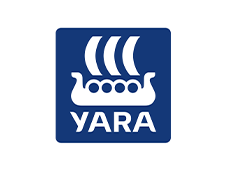GRAAFF FRUIT: The Ideal Blend of Varietal Innovation and Farming Tradition
With family farming roots running deep, Graaff Fruit is a third-generation business bringing customers around the world healthy, tasty, natural products from its 220ha Lushof farm. “Graaff Fruit is a company entrenched in traditional values, with contemporary ideas,” it sums up, of the dual driving forces behind its provision of some of South Africa’s finest fruits.
With its name coming from the Roman goddess of fertility, the Ceres Valley is renowned for producing some of the best quality fruit in the world and ideal for the cultivation of an array of vegetables and fruits like cherries, peaches, apples, plums, pears, nectarines, and apricots.
In 1968 the Graaff family purchased the Lushof farm in the Warm Bokkeveld area near the town of Prince Alfred Hamlet, barely north of the Ceres Valley in the Western Cape. Robert Graaff later became the first member of the Graaff family to live on the farm, moving over in 1997 and beginning farming there the following year.
Today, Graaff Fruit packs in excess of 25,000 tons of fruit annually. Delecta, the South African exporter of deciduous and citrus fruit in which Graaff Fruit now holds a 63.5% share, exports more than five million cartons of produce from 120 suppliers to 35 countries.
PARTNERSHIP WITH NATURE
Since the outset the farming area has almost tripled in size, from the original 80ha under production to its current 220ha, with a medium chill climate and high summer temperatures combining to produce good sugar levels, all underpinned by a healthy supply of water received from mountain runoff through local irrigation schemes. “Today under the guidance of [GM] Danie Viljoen and his team,” Graaff details, “we produce apricots, peaches, nectarines, plums, pears and apples here.”
At Romansrivier, near Wolseley in the Breede River Valley, Graaff Fruit also produces stone fruit under nets, an additional measure which helps to mitigate the challenges presented by the climate and protect the trees and fruit from wind damage. “As our storage dam is situated higher than our orchards, we are able to irrigate our orchards by gravitational flow which ensures a very low carbon footprint,” Graaff Fruit adds.
“We are proud of our Romansrivier nature reserve which is managed in co-operation with CapeNature and seeds from plant species growing in the reserve have been sent to the Millennium Seed Bank in the UK.”
The purchase in 2012 of the very large Rietfontein farm, situated in the golden Triangle in the Koue Bokkeveld just 50km north of Ceres, added a significant apple portfolio to Graaff Fruit’s productions in a region blessed with very high winter chill units and mild summers. The farm has abundant water supplies, and presents considerable opportunity for future expansion.
Graaff Fruit takes nothing for granted in the fortune it has been granted in the many advantages to its various locations. “We believe in preserving what Mother Nature provides,” it commits. “We are in partnership with nature. With our roots firmly grounded in Africa, we also feel a strong sense of social responsibility towards our community and our country. It influences the way we farm, invest, and do business.”
“Graaff Fruit is committed to supporting methods that are sustainable, that minimise wastage and that preserve the environment.”
Chiefly producers of top quality stone, pome fruit and table grapes as well as onions, Graaff Fruit has today have achieved complete vertical integration and involvement in the entire supply chain through intellectual property management, nursery, production, packing, shipping, and marketing the product.
CONTEMPORARY IDEAS
South Africa is among the foremost fruit producing countries in the world and more than 50% of its agricultural exports number fruit, contributing 2.5% to the country’s GDP. Apples have been produced commercially in South Africa since the 1880s and have been exported from South Africa to the UK since the 1890s, while pears topped the export charts from as early as 1910.
Consequently, there are basketfuls of acquired knowledge and wisdom around this ancient art to deploy, which Graaff Fruit expertly combines with the best of modern innovation and ideas. “We are driven by progressive innovation and have a well-defined company culture of providing our customers with the best possible fruit in every aspect,” it explains.
Graaff Fruit is always prepared to extend its reach in pursuit of the best, too. “We travel abroad annually in search of new cultivars that would be suitable for the South African climate and soil and this keeps us at the forefront of varietal innovation. We have tested hundreds of new varieties on our trial orchards, including a trial orchard under net, and this process is ongoing from year to year.”
“Our philosophy is to maintain relationships with all breeders in order to make the best variety choices for our needs.”
“We position ourselves as leaders in our field by remaining on the forefront of the latest developments and technology in our farming sector,” the company furthers, which it achieves by keeping itself keenly abreast of trends within the industry and regularly consulting various specialists who are world leaders in their fields.
Known for its unbending standards and its glorious marriage of historic knowledge with the best of modern technology, Graaff Fruit is at the root of some of the best deciduous fruit in South Africa; equally, it stresses, it is a caretaker, of both the environment and its people, who it recognises are firmly at the backbone of the organisation. “We continuously nurture good working relationships with our staff members, maintain ethical practices and work towards continual improvement of their living standards,” the company resumes.
“We realise that our business would not exist without them and that healthy worker relations lead to a healthy business.”

